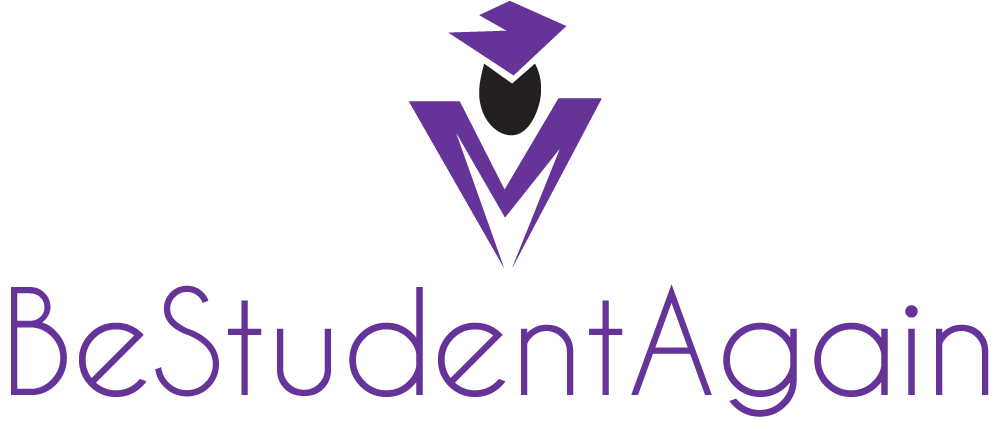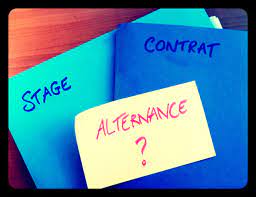Pour acquérir de l’expérience professionnelle et enrichir leur CV, plusieurs étudiants se mettent en quête d’un contrat alternance. Mais il n’est pas toujours évident de dénicher une entreprise pour les accueillir et les nombreuses candidatures envoyées sont souvent rejetées ou demeurent sans réponses. Ce qui est une source de stress pour les futurs alternants. Dès lors, il convient de profiter des meilleures astuces pour se démarquer et décrocher rapidement et efficacement un contrat d’alternance.
Une bonne connaissance des prérequis de l’alternance
En parlant d’alternance, on parle d’un étudiant salarié, qui doit savoir jongler habillement entre sa vie estudiantine et professionnelle. Ce qui implique une bonne dose d’organisation, de motivation et d’autonomie. Il faut faire une nette distinction entre l’univers académique et celui du travail. A l’université, il faut se dédier aux études et au travail il faut s’acquitter de ses tâches et missions comme tout autre salarié.
Il faut dire que l’alternance, n’est pas une option qui convient à tout le monde. En effet, de nombreux étudiants ont du mal à trouver le bon rythme et à suivre la cadence soutenue exigée par ce statut. Dès lors, avant de se lancer dans la quête d’un contrat de ce type, il faut savoir si on est capable de concilier études et travail.
Quelle cadence d’alternance ?
L’étudiant doit savoir s’accorder à la cadence de l’université et à celle de la structure. Chose qui n’est pas toujours facile à réaliser. Dans le cas où l’alternant travaille sur un projet donné, il est recommandé de suivre un rythme de trois semaines en structure et une semaine en université. Sinon, il serait possible de consacrer quatre jours à l’entreprise et une journée pour les études. En effet, un projet nécessite d’y consacrer plus de temps et d’efforts et requiert une grande disponibilité de l’étudiant. Ceci dit, il faut que la structure soit d’accord pour l’option d’alternance proposée. Mais si ce n’est pas le cas, il existe d’autres possibilités pour aboutir sur une entente.
Pour commencer l’étudiant doit faire preuve de plus de motivation, en vue de mieux convaincre l’employeur et l’inciter à plus de souplesse. Il faut le rassurer quant à son aptitude à gérer et à organiser ses tâches et son planning entre études et travail. Il importe de le convaincre que les performances seront au rendez-vous et que les objectifs fixés seront réalisés dans les échéances imparties. Il serait judicieux aussi de discuter avec l’établissement universitaire la possibilité d’adapter les horaires et d’intervertir les cours ou d’être dispensé de quelques modules.
Quand postuler pour augmenter ses chances ?
Pour augmenter ses chances de décrocher un contrat d’alternance, il faut chercher le poste le plus tôt possible. Il convient de profiter des deux plus importantes vagues de recrutement des alternants, soit en mois de janvier et de septembre. Dès lors, il faut postuler à l’avance.
A ce propos, certaines structures commencent à sourcer leurs futurs alternants en mois d’avril pour les rejoindre en mois de septembre. Pour ceux qui ratent la bonne période, ils peuvent toujours profiter des offres pour alternance ou stage, proposées par des recruteurs plus flexibles.
Une candidature soignée pour un projet d’alternance consistant
Avant de postuler, il faut commencer par déterminer son projet professionnel, avec les principales lignes directives. Ceci servira à rédiger un CV plus cohérent et plus solide qui saura servir ses aspirations professionnelles futures. Evidemment le CV doit être accompagné d’une lettre de motivation qui reflètera fidèlement les ambitions du postulant.
L’usage des mots-clés pertinents et la mise en avant de certaines compétences et expériences vont aider dans cette démarche. Les recruteurs seront plus intéressés par un profil qui a un projet professionnel précis, soutenu par un dossier de candidature complet et personnalisé. Il faut dire qu’un CV et une lettre de motivation standards et plus généralistes ne reflètent aucune trajectoire dans le parcours du candidat. Il faut sélectionner avec soin l’entreprise ciblée ou à la rigueur un secteur d’activité, mais par la suite il faut se documenter sur la structure et sa culture. Une démarche qui saura séduire le recruteur.
Rédaction d’un CV percutant et cohérent
Il faut garder à l’esprit que dans le cadre d’un poste en alternance, la motivation et le professionnalisme du candidat sont déterminants. C’est la raison pour laquelle, il faut accorder un grand soin à la rédaction du CV, que ce soit le contenu, l’orthographe, le choix de la police ou la présentation générale du document.
Il faut valoriser son parcours académique, ses compétences et ses expériences professionnelles, mais aussi les activités extra-professionnelles. Les loisirs sont également à présenter avec grand soin, car ils peuvent mettre en avant l’esprit compétitif du candidat, son engagement, son sens des responsabilités, le travail en équipe, etc. Il est essentiel d’adapter son CV au poste visé. Il ne faut pas hésiter à décrire chaque loisir brièvement de manière percutante au lieu de se contenter de les lister. C’est un indicateur qui peut apporter des précisions sur la personnalité du postulant.
Il est primordial de mettre un titre pour le CV avec des mots clés bien sélectionnés précisant le poste convoité, la durée de l’alternance et la date de disponibilité.
Une lettre de motivation est une plus-value
La lettre de motivation est un document important qui vient compléter le CV. Elle permet d’expliquer le choix du candidat pour l’entreprise, son intérêt, ses envies, et ses motivations. Dès lors, il faut que la lettre soit rédigée en soignant particulièrement sa prose. Elle peut être un élément décisif dans le choix de l’entreprise.
Attention aux réseaux sociaux
En vue de préparer l’entretien d’embauche, il faut commencer par faire un brin de nettoyage dans ses réseaux sociaux. En effet certaines entreprises peuvent consulter le profil du candidat sur des réseaux sociaux comme LinkedIn ou même Twitter, Instagram et Facebook. Dès lors, il faut vérifier le contenu partagé, les images et les vidéos qui peuvent être douteuses ou trop personnelles. Des éléments susceptibles d’être pris en considération et qui peuvent valoriser ou ternir l’image du candidat.
L’entretien, le moment de convaincre
Le jour de l’entretien, le postulant doit démontrer sa motivation et exprimer son engagement sur le long terme, ainsi que sa volonté de contribuer au développement de la structure. Cette entrevue revêt une grande importance pour le candidat, car il faut saisir cette opportunité pour montrer son aptitude à se projeter dans l’entreprise et à démontrer son esprit d’initiative. Cette étape doit être bien préparée en s’informant au sujet de l’entreprise et du poste aussi. Il faut mettre en valeur ses qualités d’endurance, de persévérance et de motivation, surtout que le contrat d’alternance est très exigent pour l’étudiant-salarié. Il faut mettre en avant aussi son sens de responsabilité, sa maturité et son autonomie. Le postulant doit expliquer la raison pour laquelle, il souhaite rejoindre la structure et sa contribution dans le poste ciblé, ainsi que son projet professionnel.
Il faut penser aussi à formuler les bonnes questions. Un interview n’est pas à sens unique, d’où l’intérêt de témoigner une curiosité saine vis-à-vis de la structure, sa culture, l’environnement du travail, les objectifs fixés à court et moyens termes, etc. Mais attention à ne pas poser des questions sur les avantages offerts par la structure ou des questions personnelles à l’interviewer. Il est conseillé de prendre des notes pendant l’entrevue, ce qui prouve l’intérêt que porte le candidat pour la structure et le job. Autrement dit, il faut être proactif et démontrer qu’on est prêt à compléter son apprentissage par une expérience professionnelle enrichissante.






